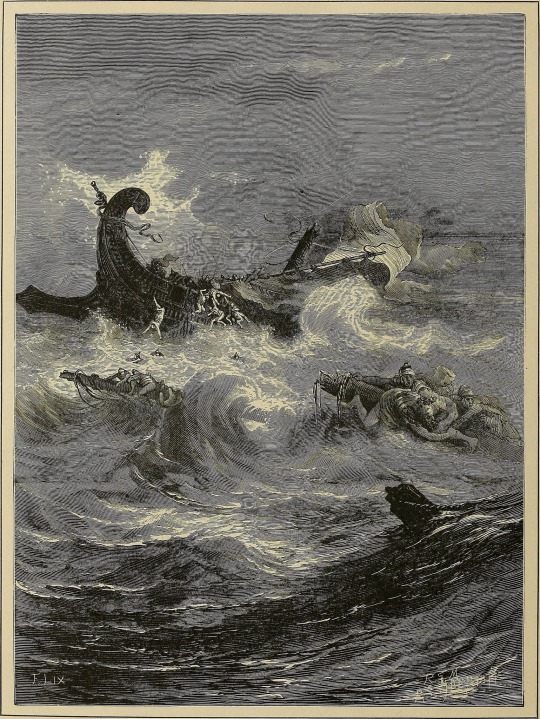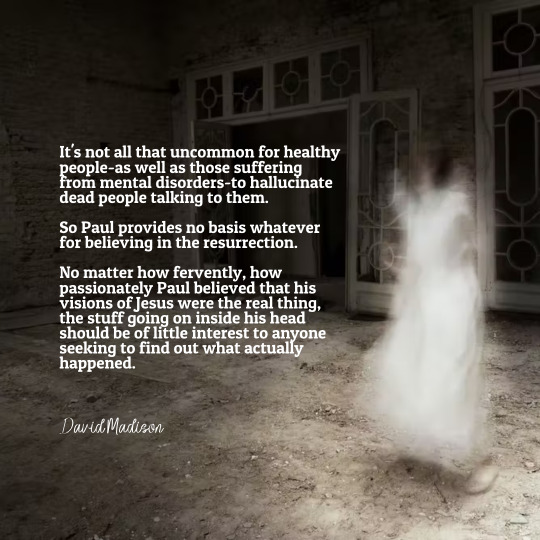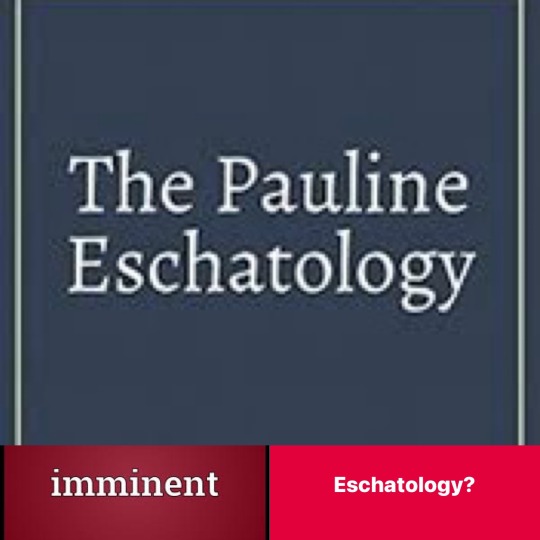#paul the apostle
Text

#bible verse#Titus#Christianity#new testament#bible study#bible reading#paul the apostle#christian community#christian encouragement#christian motivation#christian quotes#christian#christians#biblical scripture#scripture#bible scripture#God#Jesus Christ#Holy Spirit#holy bible#holy scripture#christian blog#bible#bible verse of the day#verse of the day#life quotes#man of God#faith#faith in God#christian women
98 notes
·
View notes
Text

Shipwreck of Apostle Paul off Malta in the Mediterranean Sea
#st paul#saint paul#paul the apostle#shipwrecked#shipwreck#mediterranean#art#history#apostle#religion#religious
272 notes
·
View notes
Note
Hi, not a bible person myself but I was watching a video and I was curious about something in it and figured I would ask you. It’s a video where a man is illegally arrested for having a sign with what seems to be a pretty controversial message outside of a church as the congregation is all showing up.
I’ve only read the bible once when I was young and my bible study has been limited to a week of barely paying attention at summer camp so I have what I would generously call almost zero context for what this guy was trying to say.
The sign said “The apostle Paul taught the opposite of what Jesus taught.” I know who Paul was but don’t really remember what his teachings were and how they differed so much, and why everyone got so worked up (beyond it seeming like kind of a duck move and the general rivalry between different views of Christianity)
Hi there,
I am not qualified to go into depth, but basically this person is saying that Paul undid all the work of Jesus.
This is problematic in two ways
It implies Jesus made a mistake. Jesus gave Paul the keys to the kingdom and by saying Paul (who was hand picked by Jesus) was wrong in how he lead the early Church…you can see why people get upset.
It implies that Jesus lied. (Matthew 5:15) Jesus said he would not undo Jewish laws but to “fulfill them.” And Paul said that Gentiles would not be required to adhere to Jewish rules. This is the quote many people use when refuting that Jesus would have loved everyone despite xyz.
Obviously, this man should not have been arrested.
tl;dr
Jesus picked Paul to be the leader of Christianity. Some people think Paul did a bad job leading. Some people think that belief in Paul doing a bad job is heresy.
48 notes
·
View notes
Text
Martin Luther and Paul the Apostle would have either gotten along like a house fire or they wouldn't have been able to stand in the same room. It's about the self loathing.
#Jesus fandom#christ fandom#Jacob wasnt the only one to wrestle with God ya feel#godblr#martin luther#st paul#paul the apostle#religion#Christianity#christian history#reformation
29 notes
·
View notes
Text
i finished reading damascus by christos tsiolkias (his novel about the apostle paul and early christianity) and was very pleasantly surprised by how it manages to be such a nuanced and complex look at such a controversial figure without descending into the saccharine preachiness of Christian fiction (and in fact, being written by someone who is not a Christian and also filled with enough shits, fucks, cunts, and reference to arse-fucking to instantly kill the average Christian fiction writer)
he manages to balance contrasts very effectively; a cruel, profane world of crucifixion and rape with a genuinely subversive religion of love and solidarity; a Paul flowing with genuine kindness and faith but also struggles with streaks of pride and jealousy.
but what impresses me most of all is the way the novel holds both Paul's apocalyptic gospel of resurrection in a world to come and its radical rejection of the injustice of this world with Thomas' naturalistic gospel that the kingdom has come and is among us already in Jesus' teaching. especially the way Tsiolkias acknowledges that even as Paul's gospel sits awkwardly with our modern scepticism it has heirs in any revolutionary tradition that wishes to change the world; it is this gospel that stands in condemnation of the systems of the world as they stand, and that spread the teachings of Jesus to the entire world (notably Damascus takes the interpretation that none of the other apostles bar Paul would fellowship with Gentiles).
it would have been very easy to tap into the zeitgeist of scepticism and write a novel where Paul is a charlatan or crazy fundamentalist, and the gospel of Thomas marginalised and ignored as heretical and Gnostic is rather the true faith buried by orthodoxy. Paul is a very acceptable scapegoat to bash; if we can blame all the uncomfortable bits of the Bible on him (or the bloodthirsty and primitive Old Testament) we can maintain an unsullied image of pure Christianity.
[and i don't mean to say this is entirely unjustified, especially given the way evangelicalism in particular loves to deploy isolated verses rather than entire texts! When your primary mode of engagement with him is not actually reading his epistles as works of literature, but throwing Romans 1.27 at gay people to convince them to stop being gay 100 times, that is naturally going to deeply warp your perspective of how much of his corpus is actually problematic (which, imo, when we account for 1) cultural norms re homosexuality and pederasty 2) the fact about 3-6 'Pauline' epistles were probably not written by him and 3) some verses possibly being interpolations, is really not that much).]
But such a novel purporting to expose Paul as a fundamentalist charlatan would be just as didactic and simplistic as pious Christian fiction where Paul can do no wrong and harbour no doubts and is a direct mouthpiece for 21st-century evangelical doctrine.
And so I very much appreciate the thought and empathy Tsolkias puts into this novel to understand Paul, rather than taking a few soundbites as an excuse to dismiss the man entirely. His Paul is flawed - a man who falls victim to jealousy, who sometimes makes his heart stone to avoid doubt - but also a man who believes in friendship and love across barriers of male and female, slave and free, Jew and Greek, one who hopes that this world mired in empire and oppression and crucifixion need not be the only way.
and also a man who has a homoerotic relationship with Timothy that also has v queer-coded parallels in him bringing home an uncircumcised Gentile to the apostles in Jerusalem who he fears will reject this pagan. which is cool imo
23 notes
·
View notes
Note
🥺
look at this loser, hes trying to figure out if it should choose flesh or divine. on one hand he's literally just a normal.. strugglin sufferin dude.. but on the other hand he's fated to live a long life.. they've known this feeling since before he knew what mortality was.. and the longer he liv the more true it feels. existence won't let it die no matter how loudly they knash[sic] it's teeth or beg. does this make them divine? maybe it'll let a wheel decide or something.
#nah bro that makes you some sort of martyr in the name of divine#not jesus(not a martyr) but more like#paul the apostle#apathy original#askerinos#ALSO IT'S “GNASH” NOT “KNASH”
2 notes
·
View notes
Text
See yall in the rapture imma start making Paul x Jesus fics
#bible fandom#early church#its like a mix of Judas and John in terms of shipping material#I have to read the bible in greek and then come back to make this understandable#jesus christ#paul the apostle#saul of tarsus#paul of tarsus#the judas and john ships with jesus just werent to my liking or something smh time to branch out.#'they never met' yeah once and thats enough#new testament#shenanigans
4 notes
·
View notes
Text
God does not have favorites.
Romans 2:11
#Romans#biblejournaling#hebrew bible#bible story#paul the apostle#easter#resurrection#heart posture#poetry#open heart#relationships quotes#healingjourney#yahweh#love is#jesus#faith in jesus#faith in god#holy spirit#book of romans#saint paul#jehovah jireh#jehovah rapha#healing#trust in god#keep praying#keep working#relationship goals
2 notes
·
View notes
Text
Can’t stop thinking about saints Priscilla and Aquila traveling with St. Paul, and him mentioning them with pure love in his writings 😭 I love the idea of St. Paul working on his writings while the couple work on their tents in the background

#Corinthians is making me emotional lol#also another couple to look up to!#catholic#christian#corinthians#st paul#paul the apostle
5 notes
·
View notes
Text

"It's not all that uncommon for healthy people-as well as those suffering from mental disorders-to hallucinate dead people talking to them.
So Paul provides no basis whatever for believing in the resurrection.
No matter how fervently, how passionately Paul believed that his visions of Jesus were the real thing, the stuff going on inside his head should be of little interest to anyone seeking to find out what actually happened."
-- David Madison
#David Madison#jesus christ#christianity#st. paul#saint paul#saul of tarsus#paul the apostle#bible#bible study#hallucinations#delusions#religion#religion is a mental illness
13 notes
·
View notes
Text

The Conversion of St Paul by Parmigianino
#st paul#saint paul#conversion#religious#art#religious art#religon#parmigianino#renaissance#christian#christianity#paul the apostle
107 notes
·
View notes
Text
deadnaming Saul of Tarsus because I do not respect him
11 notes
·
View notes
Text
#Jesus#God#christianity#bible#bible study#youtube#rapture#harpazo#catching away#shorts#sinless#perfection#perfect#saved#born again#new creation#paul the apostle#paul#kjv#kjvbible
3 notes
·
View notes
Text

Is Paul Teaching an Imminent Eschatology in 1 Corinthians 15:51?
Eli Kittim
Some commentators have claimed that Paul’s language in 1 Corinthians 15:51 is referencing an imminent eschatology. Our primary task is to analyze what the critical Greek New Testament text actually says (not what we would like it to say), and then to ascertain if there are any proofs in it of an imminent eschatology. Let’s start by focusing on a particular verse that is often cited as proof of Paul’s imminent eschatology, namely, 1 Corinthians 15:51. It is alleged that this verse seems to suggest that Paul’s audience in Corinth would live to see the coming of Christ. But we must ask the question:
What in the original Greek text indicates that Paul is referring specifically to his immediate audience in Corinth and not to mankind collectively, which is in Christ? We can actually find out the answer to this question by studying the Greek text, which we will do in a moment.
At any rate, it is often asserted that the clause “We shall not all die" (in 1 Corinthians 15:51) does not square well with a future eschatology. These commentators often end up fabricating an entire fictional scenario that is not even mentioned in the original text. For starters, the plural pronoun “we” seems to be referring to the dead, not to people who are alive in Corinth (I will prove that in a moment). And yet, on the pretext of doing historical criticism, they usually go on to concoct a fictitious narrative (independently of what the text is saying) about how Paul is referring to the people of Corinth who will not die until they see the Parousia.
But, textually speaking, where does 1 Corinthians 15:51 mention the Corinthian audience, the Parousia, or that the Corinthians will still be alive to see it? They have rewritten a novel. None of these fictitious premises can be found in the textual data. Once again, I must ask the same question:
What in the original Greek text indicates that Paul is referring to his audience (which is alive) in Corinth and not to the dead in Christ (collectively)?
We can actually find out the answer to this question by studying the Greek text, which we will do right now!
As I will demonstrate, this particular example does not prove an imminent eschatology based on Paul’s words and phrases. In first Corinthians 15:51, the use of the first person plural pronoun “we” obviously includes Paul by virtue of the fact that he, too, will one day die and rise again. In fact, there is no explicit reference to the rapture or the resurrection taking place in Paul’s lifetime in 1 Corinthians 15:51. In the remainder of this commentary, I will demonstrate the internal evidence (textual evidence) by parsing and exegeting the original Greek New Testament text!
Commentators often claim that the clause “We shall not all die" implies an imminent eschatology. Let’s test that hypothesis. Paul actually wrote the following in 1 Corinthians 15:51 (according to the Greek NT critical text NA28):
πάντες οὐ κοιμηθησόμεθα, πάντες δὲ
ἀλλαγησόμεθα.
My Translation:
“We will not all sleep, but we will all be
transformed.”
In the original Greek text, there is no separate word that corresponds to the plural pronoun “we.” Rather, we get that pronoun from the case endings -μεθα (i.e. κοιμηθησόμεθα/ἀλλαγησόμεθα). The Greek verb κοιμηθησόμεθα (sleep) is a future passive indicative, first person plural. It simply refers to a future event. But it does not tell us when it will occur (i.e. whether in the near or distant future). We can only determine that by comparing other writings by Paul and the eschatological verbiage that he employs in his other epistles. Moreover, it is important to note that the verb κοιμηθησόμεθα simply refers to a collective sleep. It does not refer to any readers in Corinth!
Similarly, the verb ἀλλαγησόμεθα (we will all be transformed) is a future passive indicative, first person plural. It, too, means that all the dead who are in Christ, including Paul, will not die but be changed/transformed. The event is set in the future, but a specific timeline is not explicitly or implicitly given, or even suggested. Both expressions (i.e. κοιμηθησόμεθα/ἀλλαγησόμεθα) refer to all humankind in Christ or to all the elect that ever lived (including, of course, Paul as well) because both words are preceded by the adjective πάντες, which means “all.” In other words, Paul references “all” the elect that have ever lived, including himself, and says that we will not all perish but be transformed. We must bear in mind that the word πάντες means “all,” and the verb “we will all be changed” (ἀλλαγησόμεθα) refers back to all who sleep in Christ (πάντες κοιμηθησόμεθα). Thus, the pronoun “we,” which is present in the case endings (-μεθα), is simply an extension of the lexical form pertaining to those who sleep (κοιμηθησόμεθα). So, the verb κοιμηθησόμεθα simply refers to all those who sleep. Once again, the adjective πάντες (all/everyone)——in the phrase “We will not all sleep”—— does not refer to any readers in Corinth.
There is not even one reference to a specific time-period in this verse (i.e. when it will happen). Not one. And the plural pronoun “we” specifically refers to all the dead in Christ (πάντες κοιμηθησόμεθα), not to any readers alive in Corinth (eisegesis).
And that is a scholarly exegesis of how we go about translating the meanings of words accurately, while maintaining literal fidelity. It’s also an illustration of why we need to go back to the original Greek text rather than to rely on corrupt, paraphrased English translations (which often include the translators’ theological interpretative biases).
Conclusion
What commentators often fail to realize is that the first person plural pronoun “we” includes Paul because he, too, is part of the elect who will also die and one day rise again. Koine Greek——the language in which Paul wrote his epistles——is interested in the so-called “aspect” (how), not in the “time” (when), of an event. First Corinthians 15:51 does not suggest specifically when the rapture & the resurrection will happen. And it strongly suggests that the plural pronoun “we” is referring to the dead, not to the readers who, by contrast, are alive in Corinth.
Some commentators are simply trying to force their own interpretation that doesn’t actually square well with the grammatical elements of 1 Corinthians 15:51 or with Paul’s other epistles where he explicitly talks about the Day of the Lord (2 Thessalonians 2:1-12) and the last days (1 Timothy 4:1; 2 Timothy 3:1 ἐν ἐσχάταις ἡμέραις), a time during which the world will look very different from his own. The argument, therefore, that 1 Corinthians 15:51 is referring to an Imminent Eschatology is not supported by the textual data (or the original Greek text).
What is more, if we compare the Pauline corpus with the eschatology of Matthew 24 & 2 Peter 3:10, as well as with the totality of scripture (canonical context), it will become quite obvious that all these texts are talking about the distant future!
If anyone thinks that they can parse the Greek and demonstrate a specific time-period indicated in 1 Corinthians 15:51, or that the phrase “all who sleep” (πάντες κοιμηθησόμεθα) is a reference to the readers in Corinth, please do so. I would love to hear it. Otherwise, this study is incontestable/irrefutable!
The same type of exegesis can be equally applied to 1 Thessalonians 4:15 in order to demonstrate that the verse is not referring to Paul’s audience in Thessalonica, but rather to a future generation that will be alive during the coming of the Lord (but that's another topic for another day):
ἡμεῖς οἱ ζῶντες οἱ περιλειπόμενοι εἰς τὴν
παρουσίαν τοῦ κυρίου.
“we who are alive, who are left until the
coming of the Lord.”
If that were the case——that is, if the New Testament was teaching that the first century Christians would live to see the day of the lord——it would mean that both Paul and Jesus were false prophets who preached an imminent eschatology that never happened.
#1Corinthians15v51#1Thessalonians4v15#imminent eschatology#preterism#realized eschatology#the little book of revelation#koineGreek#PaulineCorpus#historicalcriticism#parousia#historicalgrammaticalmethod#futurism#paul the apostle#Τομικροβιβλιοτηςαποκαλυψης#futureeschatology#resurrection#Biblicaleschatology#bible prophecy#textual criticism#KoineGreekgrammar#inauguratedeschatology#rapture#parsingkoineGreek#EK#last days#day of the lord#eschaton#bible study#ελκιτίμ#elkittim
3 notes
·
View notes
Text
"12 And I want you to know, my dear brothers and sisters, that everything that has happened to me here has helped to spread the Good News. 13 For everyone here, including the whole palace guard, knows that I am in chains because of Christ. 14 And because of my imprisonment, most of the believers here have gained confidence and boldly speak God’s message without fear."
-Philippians 1:12-14 (NLT)
#Sunday post#paul the apostle#nlt#new living translation#Bible#Bible quotes#God#Christ#Jesus#Gospel#hope#faith#trials and tribulations#hardship#strength#Phillippians
4 notes
·
View notes